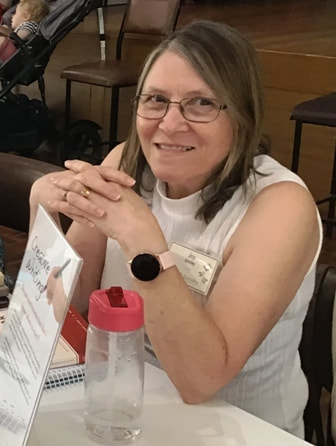Genre: Biography, Drama, History
Plot: “The foot soldiers of the early feminist movement, women who were forced underground to pursue a dangerous game of cat and mouse with an increasingly brutal State.”
Characters: Maud Watts, an ordinary and anonymous working woman (Carey Mulligan), Maud's friend Violet (Anne-Marie Duff), Edith Ellyn (Helena Bonham Carter), Maud’s husband (Ben Whishaw).
Location: Set in 1912 London.
Other: Suffragette is a solid historical drama, that tells an important social story that graphically illustrates how much the world has changed, for the better, in a hundred years. The film concludes with the astounding fact that Switzerland only gave women the vote in 1971.
Review: All appreciated this movie, although some found it quite emotionally challenging. Although not overt, there were several issues raised. Women could work, but did not have a voice; women did not have rights, only men; women were mothers or wives, possessions not people. The question was raised as to whether we still fall in to the trap ourselves, identifying ourselves as our roles. We see Maude’s inner conflict over whether to “do as she was told”, or to think for herself. Thinking for herself was labelled as “not right in the head” – a sickness.
During the movie the lighting changed from sombre to brighter as the time for women gaining the voter came closer. Even the costumes seemed to become lighter and brighter. Of interest was the list at the end of the movie showing the years that many countries gave women the vote.
…………………………………………………………….
Our April session is on 12 April. We plan to watch the movie Hunt for the Wilderpeople, starring Sam Neill and Julian Dennison. To allow time to discuss the movie, we start the movies sharply at 1:00pm.
With all the movies we watch we can look at them as literature – literature in a different medium, that of film. This helps to focus the discussion, covering ideas around genre, characters, plot, but also adding the aspects that relate to film, such as cinemascope, music and atmosphere.
Judith Borthwick


